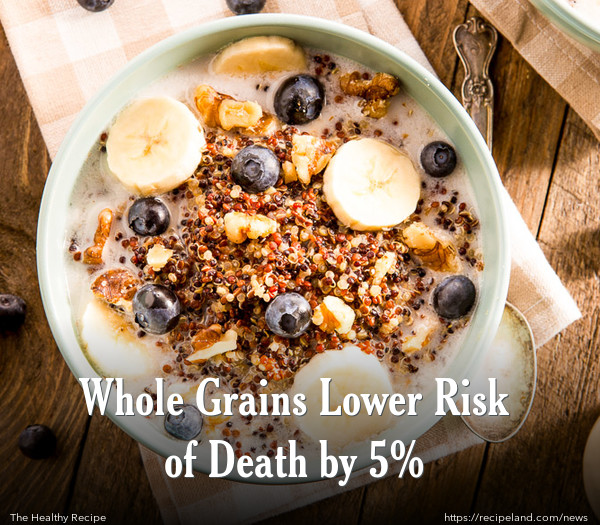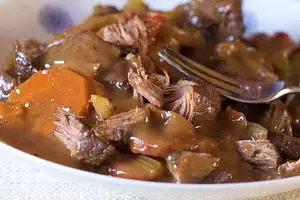A recent study published in the Journal of the American Medical Association (JAMA) showed that eating plenty of whole grains can actually increase your lifespan. After reviewing health information for nearly 3 million people, results showed that each serving of whole grains that you consume daily can reduce your risk of death by 5%. Each serving of whole grains that you consume daily will decrease your risk of developing cardiovascular disease by 9 %.
Whole grains are very different from the highly-processed refined grains that you find in most foods. White breads, crackers, and most snack foods are filled with refined grains that help your blood sugar to skyrocket and cause insulin levels to spike quickly. One of the lead researchers, Qi Sun, from the Harvard School of Public Health, explained that because whole grains contain fibre, phenolic acids, magnesium and many other nutrients, they can help people live longer by keeping their hearts healthier.
Don’t like oatmeal? Don’t fret. There are plenty of other options when it comes to whole grains. Whole grains are the part of the grains that is typically stripped away during processing. When oats or wheat is added to cereals and breads, it is often a reduced-nutrition version that lacks the health boost of whole grains.
Manuel Villacorta, M.S., R.D., the author of the popular book Whole Body Reboot, stated “You want to get the least-processed versions of these grains into your diet.” Options include whole wheat, barley, quinoa, whole rolled oats, brown rice, corn, buckwheat, millet, amaranth, sorghum, rye, teff, and triticale.
Sadly, there are many food labels proclaiming foods to be “whole grain” and contain healthy ingredients, when, in fact, the foods are not necessarily made from whole grains. Key words to avoid when checking labels include “multi-grain,” “stone ground,” “100% wheat,” and “cracked wheat.” These ingredients do not have to actually be made from whole grains, and this can be confusing for consumers.
Wondering whether it’s better to buy organic? These conclusions are still unclear. Organic foods are not necessarily healthier, in some cases. Joy Dubost, R.D., an Academy of Nutrition and Dietetics spokesperson, stated, “You’ll avoid some pesticides with organic whole grains, and it’s possible there may be health benefits. But I haven’t seen any definitive research on that yet.”
Certain whole grains, like quinoa, have shown up on many lists of “superfoods” lately. But, quinoa is not a whole lot better than the other whole grain options, although it does contain protein and certain vitamins not present in all whole grains. But, when it comes to getting the health benefits and protecting your heart, all whole grains are going to be beneficial. This means you have permission to eat the whole grains that you prefer, and not have to stick to certain types that you may not like as much.
Can you still indulge in bread and pasta? Well, many breads and pastas will advertise that they contain whole grains. But, those whole grains are included in a long list of other ingredients, including sugar, salt, and potentially unhealthy additives or preservatives. If you want to reap the complete benefits of whole grains, then opt for the least processed versions, not just eating them as ingredients in other foods. Bulk rolled oats are a great option, unprocessed brown rice, quinoa and other whole grains can often be found in the bulk section of your supermarket.
The JAMA study recommended that people consume at least three 28-gram servings of whole grains per day to get the health benefits described. This equates to three 1/8-cup servings per day. If your whole grains are included as ingredients in breads or pastas, then you will need to increase that size to more than 1/8-cup per serving to get enough to really get the benefits. Adding a large bowl of oatmeal to your day can get you well on your way to the recommended daily amount!










Comments